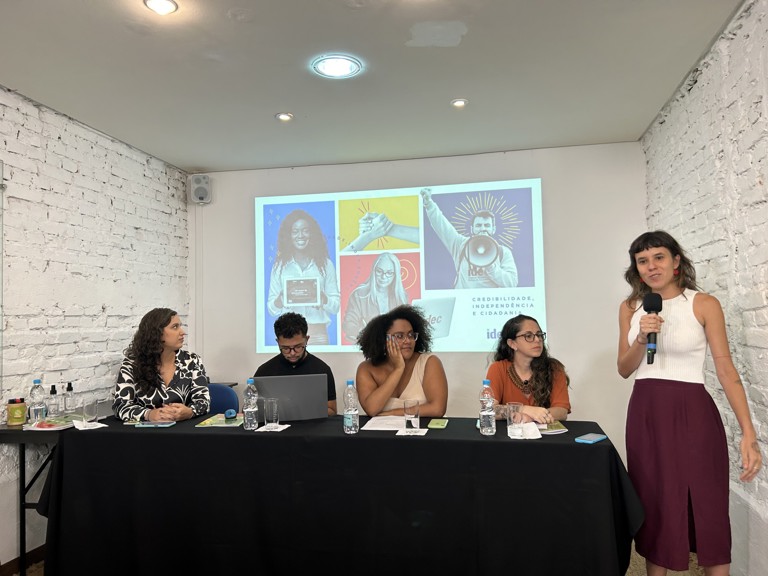Idec holds event to publicize study on meat chain financing and its negative impacts
The event took place in São Paulo and was attended by organizations and experts on the subject

Idec (Brazilian Institute for Consumer Defense) held a discussion in São Paulo to publicize the study "Financing the Meat Chain: regulatory instruments and the environment". The event, which was broadcast online, brought together representatives of civil society and experts on the subject who spoke about the importance of stricter regulation for banks' financing of agriculture.
The meeting strengthened civil society's debate on the role of financial institutions and regulators in granting credit to the meat chain. Flavia do Amaral Vieira, a human rights researcher and consultant, and Junior Aleixo, a climate justice researcher and expert, highlighted the importance of pressing for stricter rules and regulations regarding the granting of rural credit.
"In this scenario, what is the commitment of financial institutions? We need to map the institutions and regulations for financing the meat chain and the actors involved in the different stages of concessions in the sector," said Amaral.
Aleixo, meanwhile, explained the difference between financing and financialization in agriculture and highlighted how the capital market is progressively appropriating Brazilian land, including the entry of foreign capital, highlighting trends that could have profound impacts on the dynamics of agribusiness.
The granting of credit for the meat chain involves different players at each stage of the chain, both direct and indirect suppliers: livestock farmers, meatpackers, retailers and clients of different types of financing. Based on research into public data, no official survey or guide to systematizing legislation on granting credit to the meat chain was found.
Flávia emphasizes that it is the responsibility of the National Monetary Council (CMN) to update its policies on social, environmental and climatic impediments to rural credit. "For ranchers, meatpackers, retailers and financial institutions, it is recommended that they establish standards of good practice and create precise systems for monitoring and due diligence on statements and information on concessions."
The event was marked by a significant exchange of ideas and perspectives, consolidating itself as an important milestone in the discussion about the role of large banks in agribusiness financing. The study reinforces the relevance of discussing socio-environmental and in-depth issues with society as a whole, reinforcing the importance of making responsible investments.
